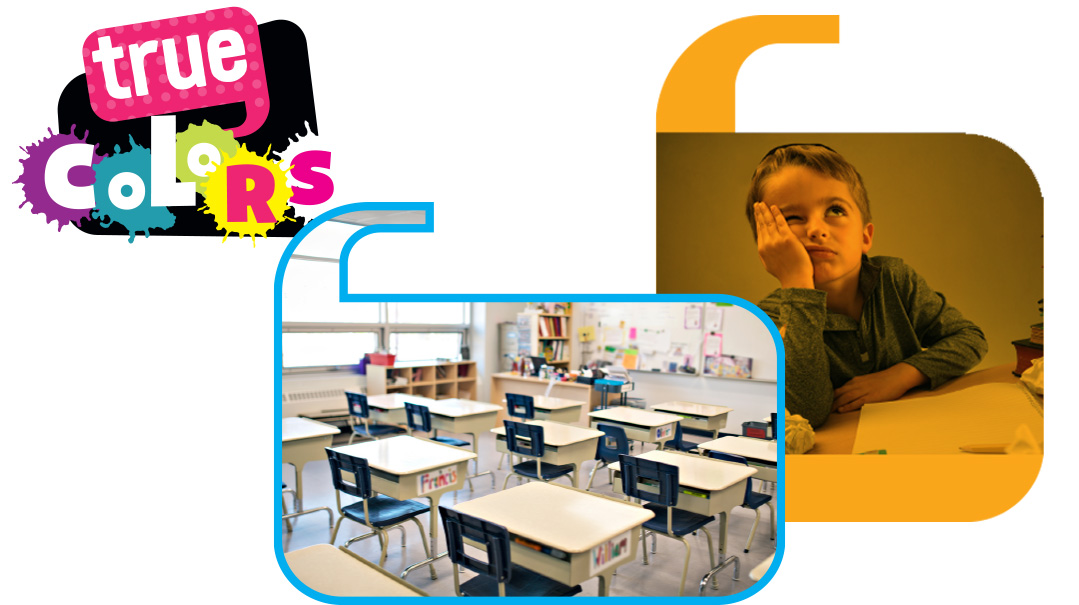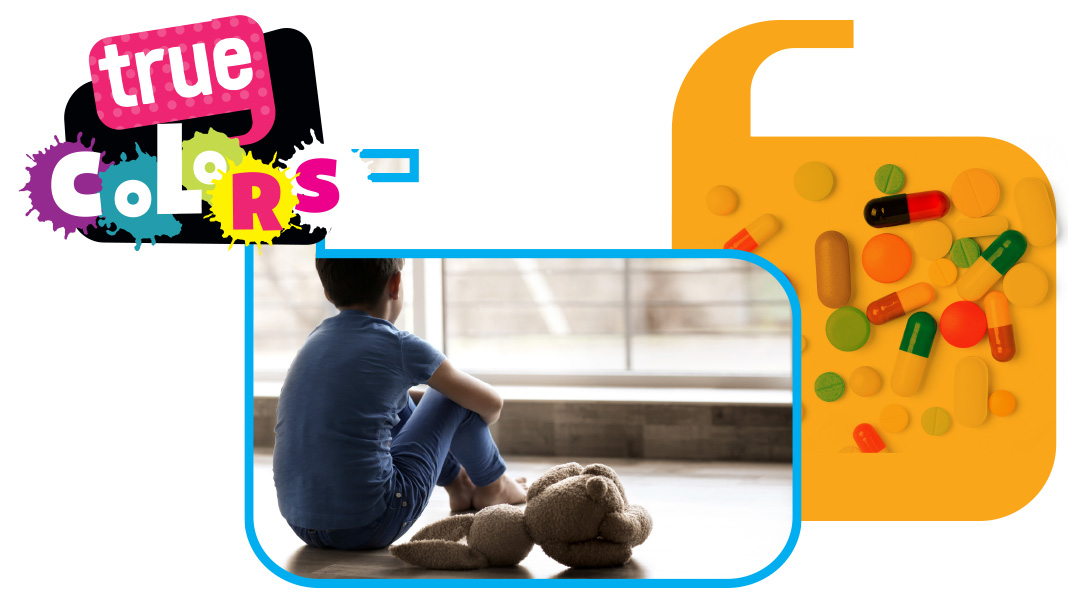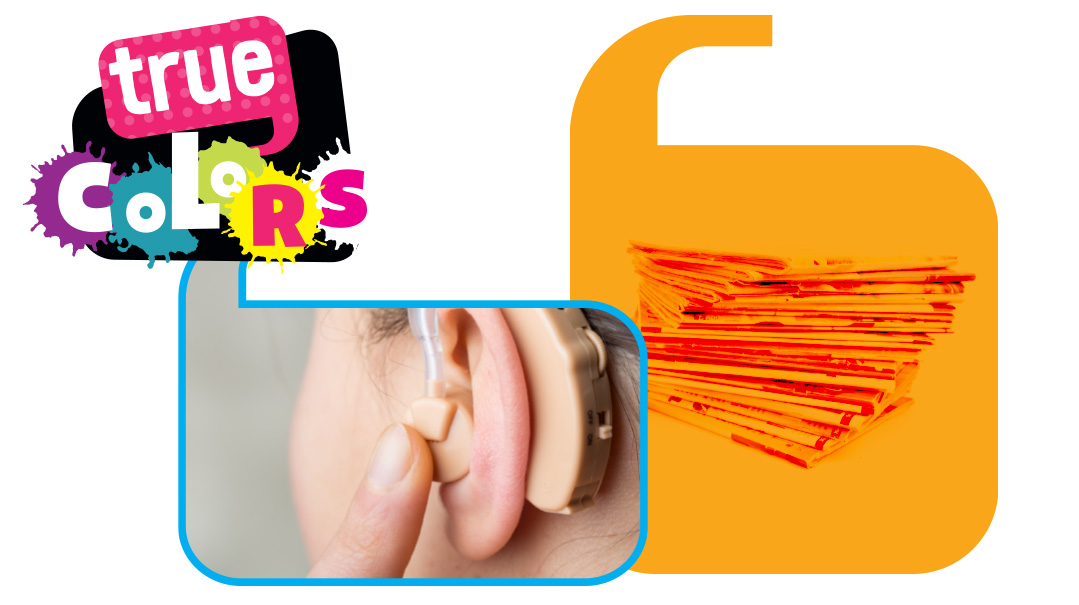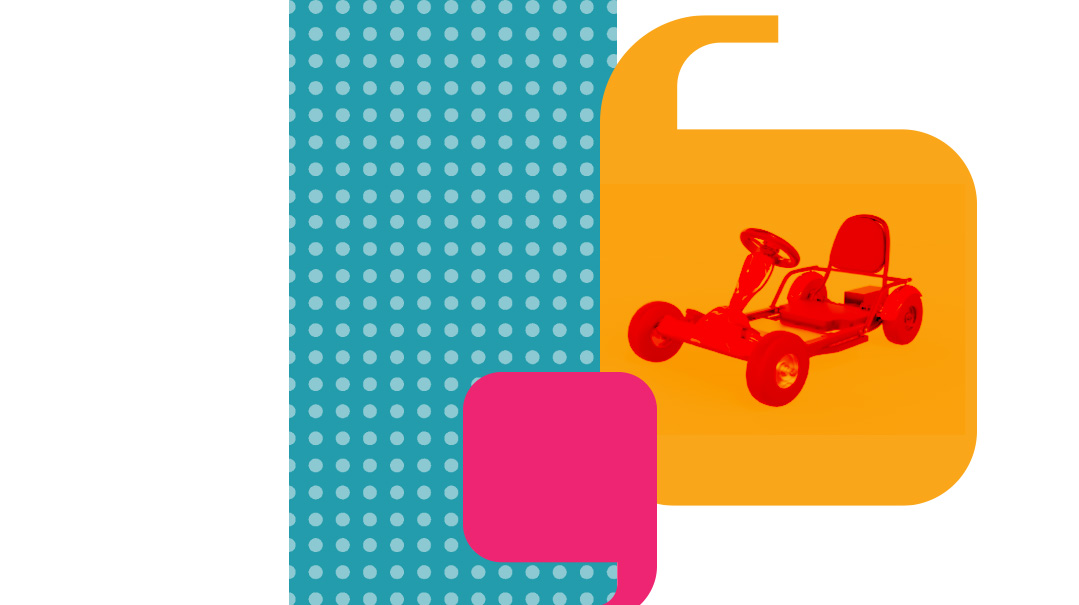Struggling at School
| April 25, 2023I had finally mastered reading in English, but at a certain point, I stopped trying to read Hebrew during class

Some kids do well at school and find that learning comes easy. Other kids struggle.
My name is Asher. I recently had my bar mitzvah, and I live in Chicago. I go to school, just like you do, but my journey hasn’t been an easy one.
Outside of school, things were always good. I have an awesome family; I’m the oldest of four. I’m curious and smart, and I love playing chess, playing sports, listening to music, and telling jokes.
Inside school, it’s a different story.
Schoolwork never came easily for me. Beginning when I was very little and learning to read, I had trouble. English reading was hard; kriah — reading Hebrew — was even harder. It was also very difficult to sit in class and concentrate on what the teacher was saying. By the time I was in second grade, my teachers and parents noticed I was struggling. I don’t remember that stage so well, but I do remember talking in the middle of class and being sent out of the classroom.
Not being able to read Hebrew well made all of the kodesh subjects very challenging. As we started learning Chumash, then Rashi, and then Gemara, it got harder and harder. I had finally mastered reading in English, but at a certain point, I stopped trying to read Hebrew during class. During the kodesh classes, I’d just read English books. It was as if I wasn’t there; I didn’t even try to follow along. Now and then I would call out during class — sometimes it was an answer to a rebbi’s question, but more often, it was a joke.
My difficulties in school caused me to slowly distance myself from schoolwork. Academically, I wasn’t keeping up with my classmates at all. My parents hired private tutors for me, including a reading specialist. I met with doctors and learning specialists and had lots of evaluations (that’s when your learning skills are tested by experts to see what’s causing so much trouble and what’s the best way to help you).
Some of the specialists met with me, and some met with me and then with my parents. I didn’t really like going to the appointments, but what made it a drop better was that I got to miss class. Sometimes I got a treat, and that was nice too.
Sometimes the principal would pull me out of class to “help” him, so I would be busy and productive in school. I was also pulled out of class with a kriah tutor. In fourth and fifth grade, my mother came to the school in the mornings to take me out of class for more kriah practice. I also had another tutor for English, and at home I met with a handwriting teacher. These all helped me, although I did not enjoy the sessions. Like I said, the only good part was missing class.
By the time I got to fifth grade, I was reading English at grade level — that means I was reading at the level I was expected to be reading at for my age. But I still wasn’t a great student, and as I mentioned, the Hebrew reading remained a struggle. Sometimes I roamed the hallways, and I didn’t participate in school activities.
My friends were never unkind, and no one teased me. Most of them didn’t realize what was going on, and the few kids who did know, didn’t say anything or tell anyone. I was aware that there was another boy in my class who was also being taken out of class to be tutored, which made me feel better — it was less lonely. However, because few people knew what was going on, no one really tried to help me or make my burden easier.
Some of my teachers were helpful. My first grade rebbi became my kriah tutor, and he was great.
By the time I reached sixth grade, I hadn’t learned properly in a classroom setting for years. But I put a lot of hard work into trying to catch up, and it was starting to pay off.
Plus, there was my sixth grade rebbi, Rabbi Heber. He really helped me believe in myself and start transitioning into a student. I felt how much Rebbi loved and cared about me, and that helped me stay motivated, even when it was really tough going.
It was a turning point for me. Though it took a lot of effort, I worked hard to pay attention in class and complete the tasks that were assigned. For the first time, I took tests, and I did my homework. I was proud of myself.
In the past, I’d been stuck in a cycle of doing badly and feeling worse and worse about myself, and now the spiral went the other way: I invested time and energy into my schoolwork, and I felt better and better. Also, my friends slowly started seeing me as a fellow student, and not just as the boy who roamed the halls.
A highlight for me was when I started going to a voluntary mishmar program at night. This was extra learning that wasn’t mandatory, but I went anyway.
Davening was still difficult. I didn’t join my class for minyan in sixth grade. But eventually, without my parents or teachers pushing me, I started joining the minyan every day.
Now I am in seventh grade, and I am doing really well! It’s easier for me to read the gemara. I’m an active member of my class. It takes a tremendous amount of energy and focus, but I’m keeping up, and I’m succeeding. I take notes and participate in class. And now I daven with the yeshivah minyan every single day and am makpid not to miss a minyan. I am motivated to do well.
Some situations are hard. And I know just how hard it can be to struggle with schoolwork. But I am proof that no matter how hard it is, you can overcome the challenge!
(Originally featured in Mishpacha Jr., Issue 958)
Oops! We could not locate your form.







